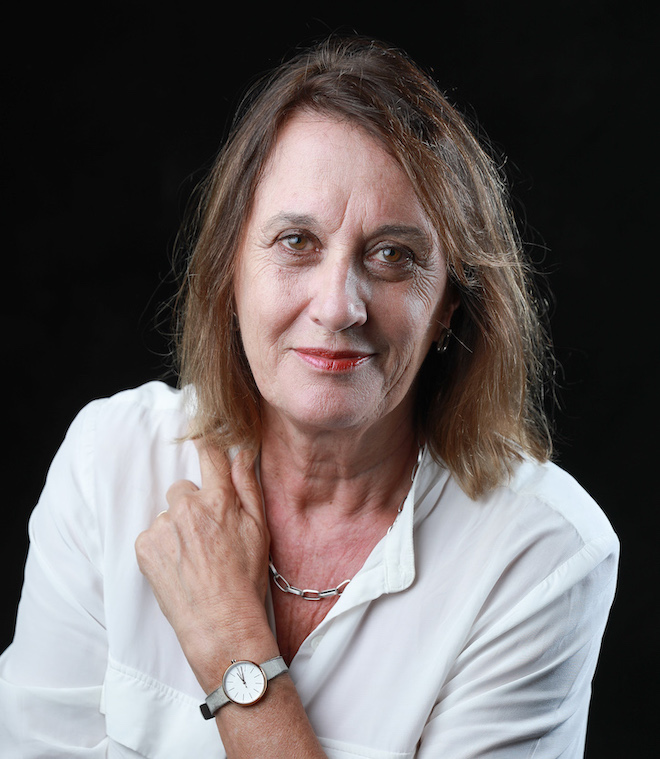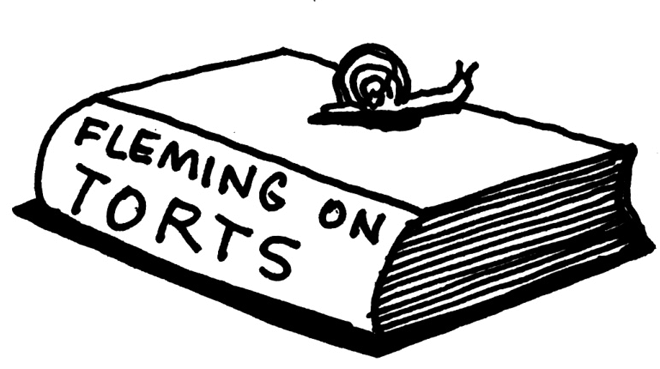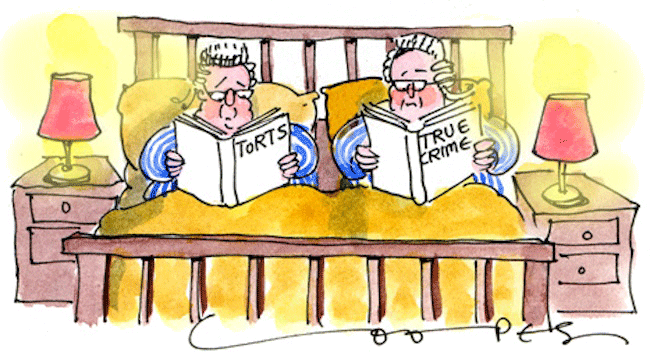Barbara McDonald - the high priestess of torts and privacy ... Former torts law professor at the University of Sydney ... What's on the horizon for the development of privacy and other torts ... The bureaucratisation of scholarship and academic life ... Life at the academy ... Interview with Ariana Haghighi
 Barbara McDonald: torts teacher concerned about the erosion of academic life
Barbara McDonald: torts teacher concerned about the erosion of academic life
Refreshed after her European expedition, I sit down with recently retired Emeritus Professor Barbara McDonald to discuss recent developments in the theatre of torts, as well as her experience of the changing academic landscape over 32 years of teaching at the University of Sydney Law School.
If you're anticipating a tort of privacy in the coming months, you may need to be patient. Although the Attorney General recently indicated his support, McDonald foresees "a deadlock until an egregious case forces some action".
Australia may appear a laggard compared to the jurisdictions of the United Kingdom, Canada and New Zealand all of which have a tort of privacy. However, development of this cause of action requires careful consideration of the Australian media landscape, and the balancing principles of personal and public interest.
McDonald flags the question of revealing the identity of suspects during investigation as a hot-button issue. She mentioned the recent case of the accused "Mushroom Poisoner" Erin Patterson. As this was very much in the public domain the disclosure of her identity was not controversial.
"But what if this was a private investigation?" she questions. "The disclosure of an investigated person's identity could be career-ending." This issue is a site of contest between privacy activists and the media, but McDonald cites an oft-forgotten factor - "the integrity of the investigation".
McDonald was a key architect of the cause of action when working on the tort of privacy reference at the Australian Law Reform Commission.
To constitute the tort, a wrong would have to be a "serious intrusion" into a "reasonable expectation" of privacy. A hurdle that considers competing interest is embedded within the law: to the question "does the interest in privacy outweigh public interest?", the answer must be in the affirmative.
McDonald explained:
"We considered, but did not implement, a higher bar of highly offensive conduct. The phrasing of reasonable expectation better aligns with other countries with the tort of privacy, which means there is more consistency between jurisdictions and more shared, relevant case law."
Privacy activists advocated for a regime of strict liability, and McDonald recognises their dissatisfaction with the ALRC's construction.
However, a strict liability tort of privacy could be suffocating for journalism.
The ALRC design takes account of Australia's defamation regime. McDonald describes us as a "trigger-happy population" when it comes to defamation. People are eager to sue, even though there may be subsequent regrets.
The current defamation environment does have a chilling effect on journalism, yet McDonald "does not believe journalists should have a free for all".
With no Bill of Rights nor privacy tort, are Australians doomed to be without privacy protections?
Not exactly: McDonald explains there are "some protections for privacy already in the Australian law - but they all have gaps." She points to the potential for the under-used "tort for intentional infliction of distress" - as the damage of privacy invasions is usually confined to distress.

The law of torts continues to evolve in step with social mores. McDonald presages a flood of cases on institutional liability for sexual assault, due to the landmark High Court case GLJ v The Trustees of the Diocese of Lismore which limits the capacity for courts to grant permanent stays - the effective way the door was closed on justice-seeking victims.
Another issue is the extent of the church's vicarious liability for its priests outside hours. As we expect more cases to arrive on the courts' doorstep, McDonald raises the issue, "who will pay for these claims?" - and how?
McDonald also suspects we might soon see an eruption in the unregulated industry of e-bikes and e-scooters. Presently, there are no license or registration requirements for these vehicles, even though they can lead to serious injury.
She believes there must be discussion on insuring users and enterprise liability, which possibly will appear in more case law soon.
Academic life
Over her 32 storied years as an academic, McDonald has witnessed a "decline in transparency and collegial decision-making in the Law School and university as a whole".
For example, Law School staff previously voted on the appointment of the faculty's Dean, yet now this role is selected by Sydney University management, with little transparency as to how the decision was made, nor in consultation with academics.
Current Law School Dean Simon Bronitt will finish his term in June 2024, but there are "no announcements regarding Dean selection, nor public advertisement".
"It's not the way things used to be done."
She also fears that the ongoing Sydney University curriculum review will reduce the time students spend learning torts, a far cry from the one-year teaching period of old.
At the dawn of McDonald's time as a tutor, the torts assessment was a research essay, for which students were given two months for completion.
She praises this assessment structure, in comparison to a current student's heavy assessment plate, which provides "no thinking time". "Something's always due," she exclaims.
There is also the difficulty in finding torts academics, as many divert into private practice. Under current appointment policies, academics require a PhD, but this slims the pickings and deprives suitable scholars of opportunities.
Acquiring a PhD proves impossible for many as it is "hard to support yourself" while completing the work.
Barbara McDonald sees many of the problems facing the Law School as symptomatic of failing university administrative practices. "Faculty should be treated as scholars, not drones."

She raises a recent staff survey, which amassed a damning response on student services.
However, soon after this survey took place, the University created a new leadership position, the Strategy and Leadership Deputy Vice Chancellor. McDonald thinks this role as "unnecessary" and a misuse of money that could be allocated to professors.
She is critical of the rapid centralisation of student services, calling it a "disaster". It is another sign of the theft of the control that academics used to exercise. Now they are compelled to spend time on elements of administration that do not improve the student experience.
"It's all dictated by people who don't have a law degree," McDonald says. "You even need permission from the Deputy Vice Chancellor to change the due date of an assessment task".
There needs to be a call-to-action by students, whereby they are encouraged to "question decisions made by administration".
The future of university, much like the law, is in the hands of its constituents.